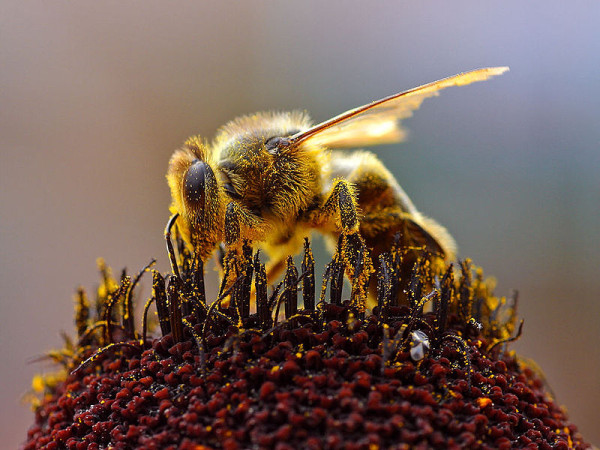For centuries bees, among the hardest working creatures on the planet, have benefited people, plants and the environment. By carrying pollen from one flower to another, bees and other pollinators enable not only the production of an abundance of fruits, nuts and seeds, but also more variety and better quality, contributing to food security and nutrition.
Pollinators such as bees, birds and bats, affect 35 percent of the world’s crop production, increasing outputs of 87 of the leading food crops worldwide, plus many plant-derived medicines. Three out of four crops across the globe producing fruits or seeds for human use as food depend, at least in part, on pollinators.
Talking Bees
FAO hosts a special discussion on the importance of bees and the threats facing them, moderated by the BBC Radio 4 presenter Martha Kearney.
The discussion features the participation of Nicola Bradbear, Founder of Bees for Development and President of Apimondia’s Scientific Commission for Beekeeping for Rural Development; Abram J. Bicksler, Agricultural Officer for the Food and Agriculture Organization of the United Nations (FAO); Dave Goulson, Professor of Biology, University of Sussex; and Dr. Samuel Ramsey, Entomologist, Bee Research Lab of the United States Department of Agriculture – Agriculture Research Service (USDA-ARS). Composer Michael Omer will perform his version of The Flight of the Bumblebee to conclude the event.
Download the photos from the event here.










